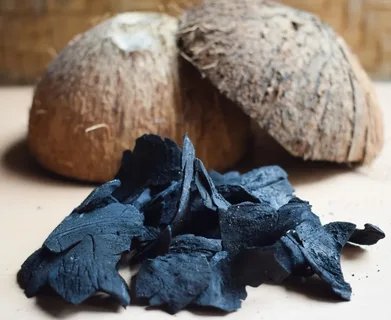Charcoal made from coconut shells and castor seeds is a sustainable and eco-friendly product derived from organic materials. Coconut shell charcoal is produced by carbonizing the hard shells of coconuts, while castor seed charcoal is made from the waste byproducts of castor oil extraction. Both types of charcoal are highly valued for their ability to burn efficiently, produce minimal smoke, and serve a wide range of industrial, domestic, and environmental purposes. They are particularly popular for use as fuel, in water filtration, and in various other applications that require activated charcoal.
Benefits and Uses of Coconut and Castor Seed Charcoal
- Eco-Friendly Fuel: Coconut and castor seed charcoal are excellent sources of clean energy, burning hotter and cleaner than traditional wood charcoal. They produce fewer harmful emissions, making them more environmentally friendly.
- Water Filtration: Activated charcoal made from coconut shells is commonly used in water purification systems due to its high surface area and absorbent properties. It effectively removes impurities, chlorine, and contaminants from water.
- Efficient Combustion: Both coconut and castor seed charcoals burn efficiently with minimal smoke, making them ideal for use in cooking, heating, and other industrial applications, especially where clean combustion is desired.
- Carbon Storage: Coconut and castor seed charcoal are great at storing carbon, which helps in mitigating the impact of greenhouse gases. Their production and use contribute to carbon sequestration efforts.
- Activated Charcoal Uses: Charcoal derived from coconut shells, in particular, is activated to create a substance that is widely used in air and water purification, as well as in medicine for toxin removal.
- Industrial Applications: Charcoal from coconut and castor seeds is also used in various industries, including metal production, as a reducing agent in chemical processes, and in the production of activated carbon for filtration and decolorization in industries like food and beverage processing.
- Low Ash Content: Coconut and castor seed charcoals have a lower ash content compared to traditional wood charcoal, ensuring less waste and greater efficiency during use.
- Renewable Resource: Both coconut shells and castor seeds are renewable resources, making their use in charcoal production a sustainable and eco-conscious choice compared to non-renewable fuels.

![]() Samypalani5832@gmail.com
Samypalani5832@gmail.com![]() +91 8667065836
+91 8667065836 

![]() Samypalani5832@gmail.com
Samypalani5832@gmail.com![]() +91 8667065836
+91 8667065836 
